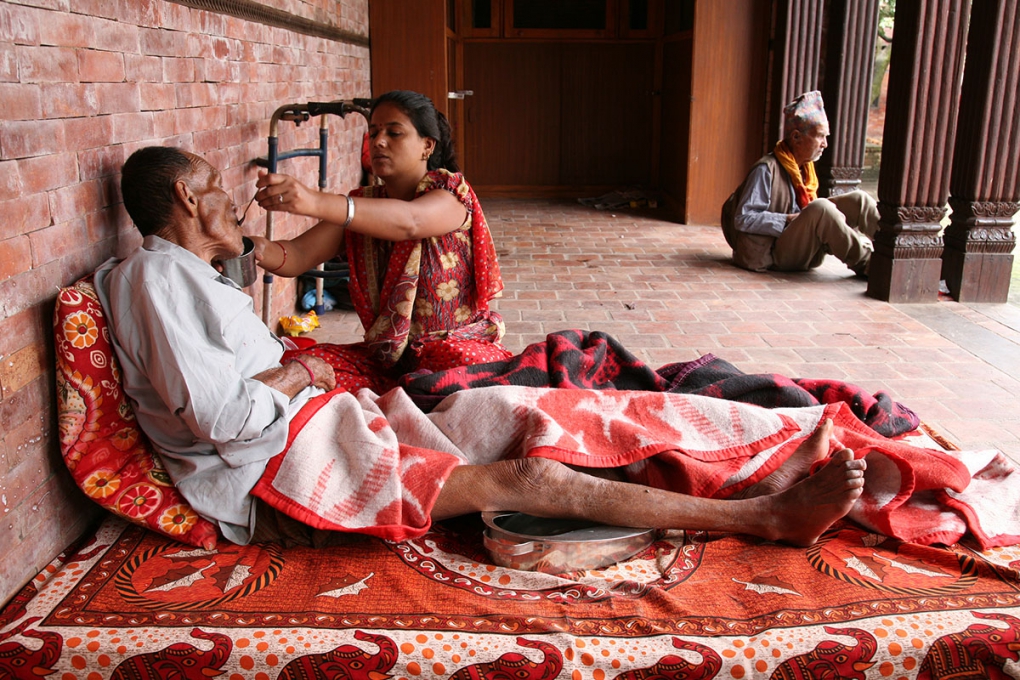
Nepal, officially the Federal Democratic Republic of Nepal, is a landlocked country in South Asia. It is located in the Himalayas and bordered to the north by the Tibetan Autonomous Regeion of The People’s Republic of China, and to the south, east, and west by the Republic of India. Nepal has an area of 147,181 square kilometres (56,827 sq mi) and a population of approximately 30 million. Kathmandu is the nation’s capital and the country’s largest metropolitan city.
 |
 |
Nepal is a country of highly diverse and rich geography, culture, and religions. The mountainous north has eight of the world’s ten highest mountains, including the highest, Sagarmatha, known in English as Mount Everest. It contains over 240 peaks more than 20,000 ft (6,096 m) above sea level. The fertile and humid south is heavily urbanized.
Hinduism is the official religion of Nepal which was a Hindu Kingdom until 2006 when full parlimentary democracy was established. Hinduism is practised by a larger majority of people in Nepal than in any other nation. Although Buddhism is a minority faith in the country, it is widely practiced especially among the Tibetan refugee population. Some estimates are that as many as 30,000 Tibetan refugees live in Kathmandu alone. Buddhism is linked historically with Nepal as the birthplace of the Buddha.
Agriculture employs more than 70% of Nepal’s working population and about half of the population live below the international poverty line of US$1.25 a day. The 2009 GDP per capita estimate was $452.
 |
 |

